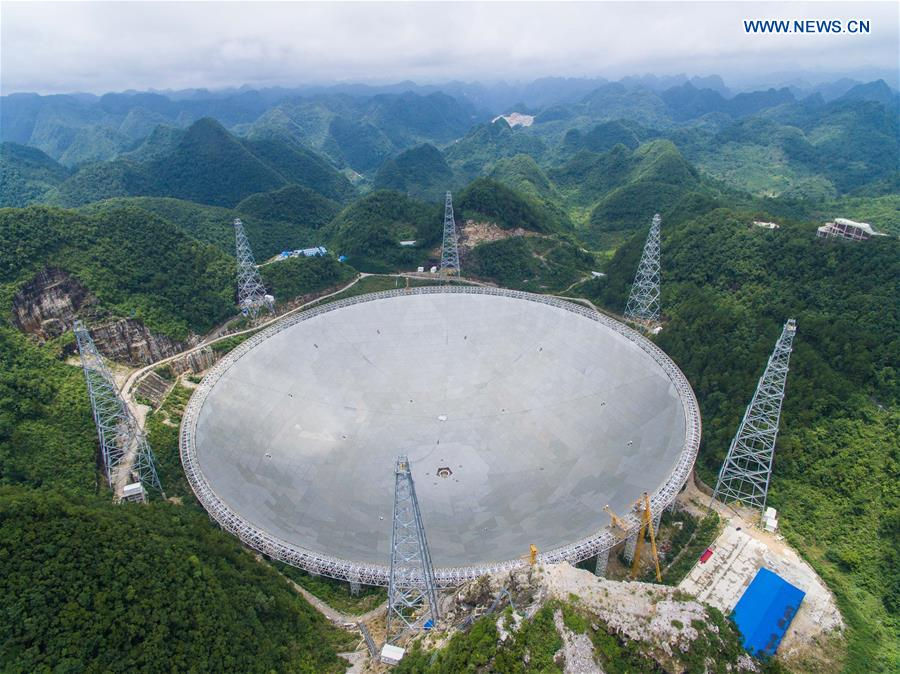China completes largest radio telescope in the world
(VNF) - China has finished building the Five-hundred-meter Aperture Spherical Telescope (FAST), the world’s largest single-aperture telescope.
 |
The Five-hundred-metre Aperture Spherical Radio Telescope (FAST) in Pingtang, China. (Credit: Xinhua)
China has put the finishing touches on the world's biggest radio telescope, whose 1,650-foot-wide dish will scan the heavens for signs of intelligent alien life, among other tasks.
On Sunday (July 3rd), technicians installed the last of the 4,450 panels that make up the Five-hundred-meter Aperture Spherical Telescope's (FAST) giant dish, China's Xinhua news agency reported.
Project team members will soon begin testing and debugging FAST, after which Chinese scientists will use it for "early-stage research," Xinhua reported. But the instrument will be available to researchers around the world when that phase is over — likely two to three years from now.
With a dish the size of 30 football fields, FAST is by far the largest single-aperture telescope in the world (though arrays that link up multiple radio dishes cover more ground). The previous record holder in the field is the 1,000-foot-wide (300 meters) Arecibo Observatory in Puerto Rico.
FAST was built in China's Guizhou Province, more than 1,240 miles (2,000 kilometers) southwest of Beijing. The 1.2-billion-yuan (USD 180 million) facility should help scientists learn more about the universe's early days, detect low-frequency gravitational waves and hunt for signals that may have been produced by distant alien civilizations, project officials said.
"As the world's largest single-aperture telescope located at an extremely radio-quiet site, its scientific impact on astronomy will be extraordinary, and it will certainly revolutionize other areas of the natural sciences," said FAST Project chief scientist Nan Rendong, according to Xinhua.
"FAST's potential to discover an alien civilization will be 5 to 10 times that of current equipment, as it can see farther and darker planets," added Peng Bo, director of the National Astronomical Observatories' (NAO) Radio Astronomy Technology Laboratory.
China's investment in space exploration is not limited to earth-based telescopes. Although it is not one of the countries that helps run the International Space Station, China launches its own rockets carrying satellites. Earlier this month, China launched Tiangong-2, its second space lab, shortly before its first space lab fell back to earth./.
Minh Phuong
Most read
Recommended
 World
World
China frustrated over joint naval and air drills in the Indo-Pacific region
 World
World
Washington-New Delhi Strategic Partnership Continues To Grow: US Envoy Says ‘If You Want To See The Future, Come To India’
 World
World
Discover The Unique Whipped Coffees Around The World
 World
World
China called out for destructing coral reefs in South China Sea
Popular article
 World
World
Mass Afghan Deportation from Pakistan: A Brewing Crisis for Regional Stability and Development
 Viet's Home
Viet's Home
Values of Vietnam's Dien Bien Phu Victory Spotlighted
 World
World
S. Jaishankar bolsters strategic collaborations across Singapore, Malaysia and Philippines
 World
World








